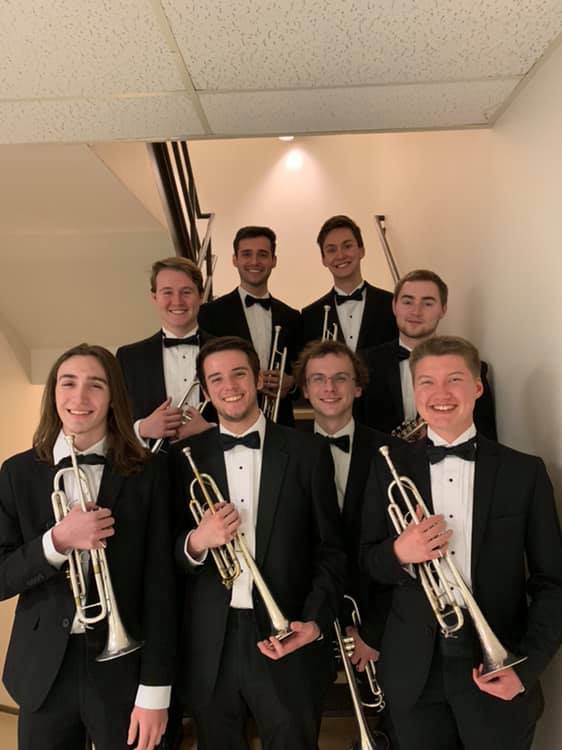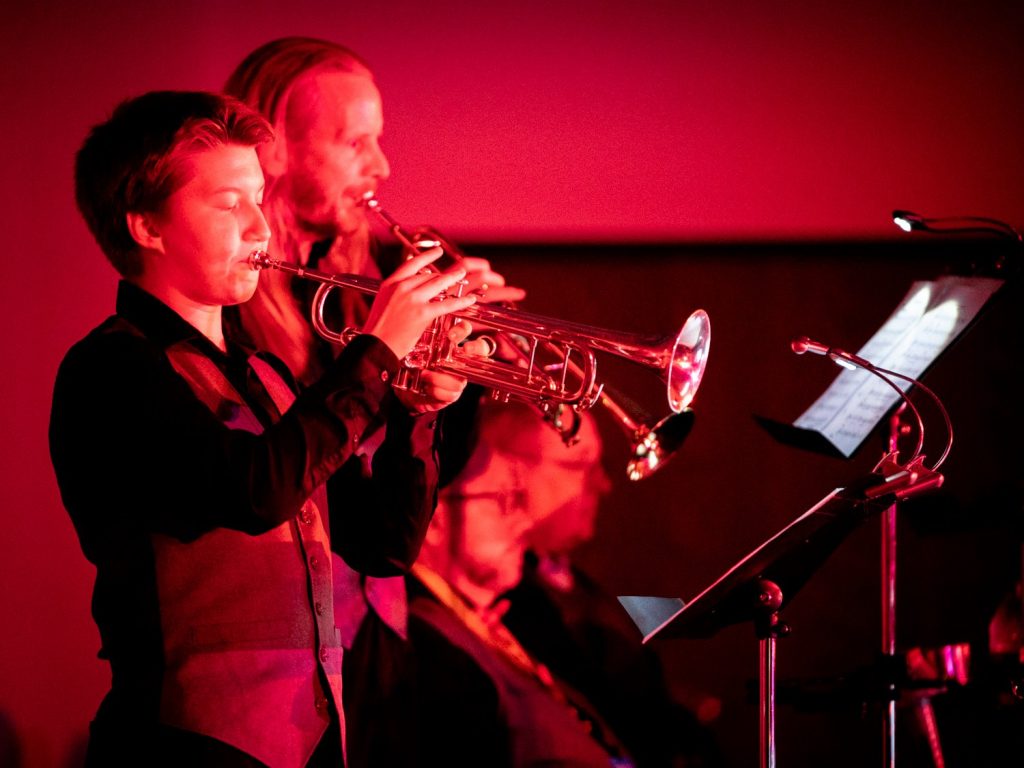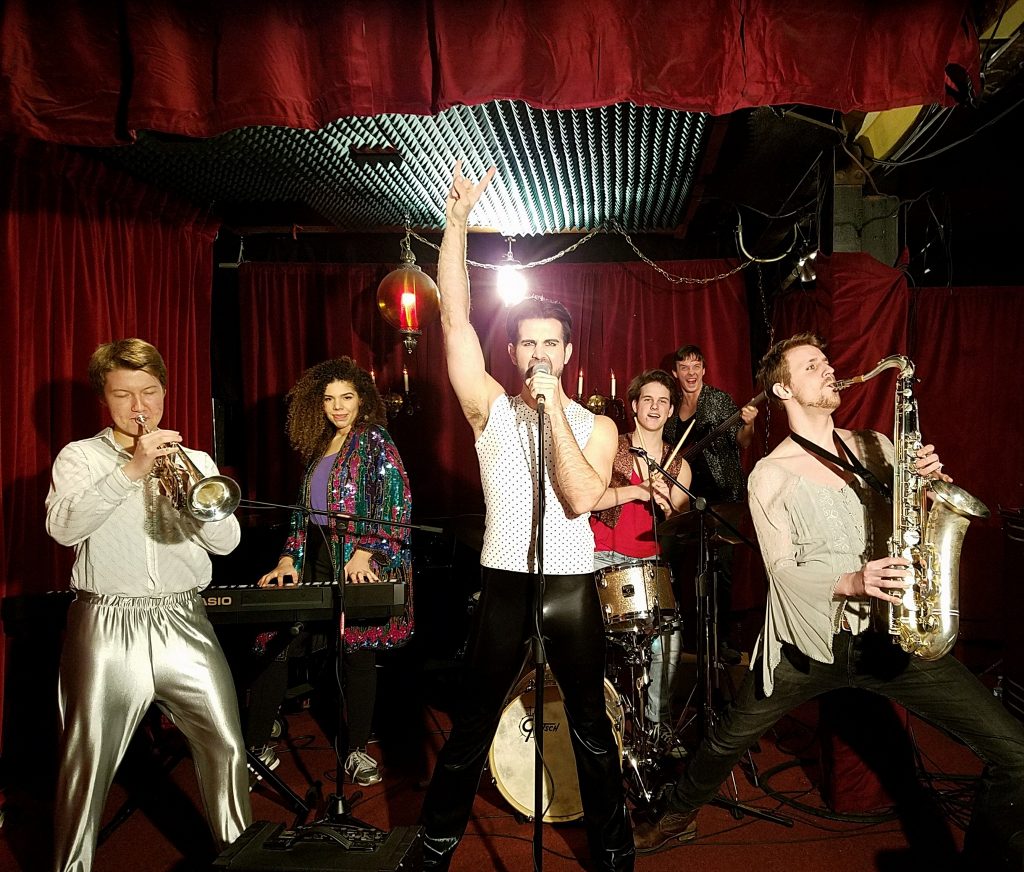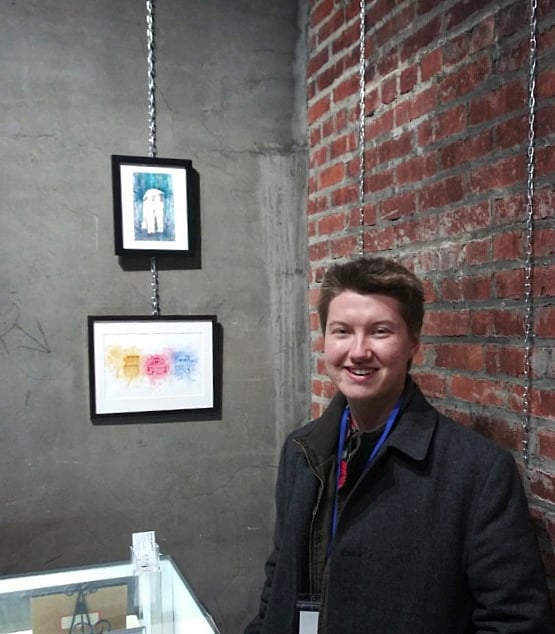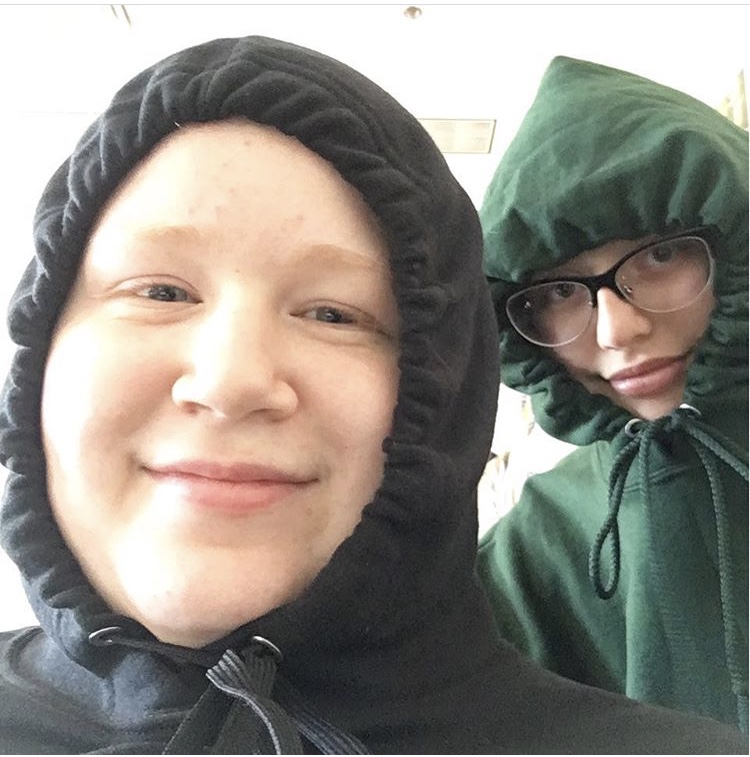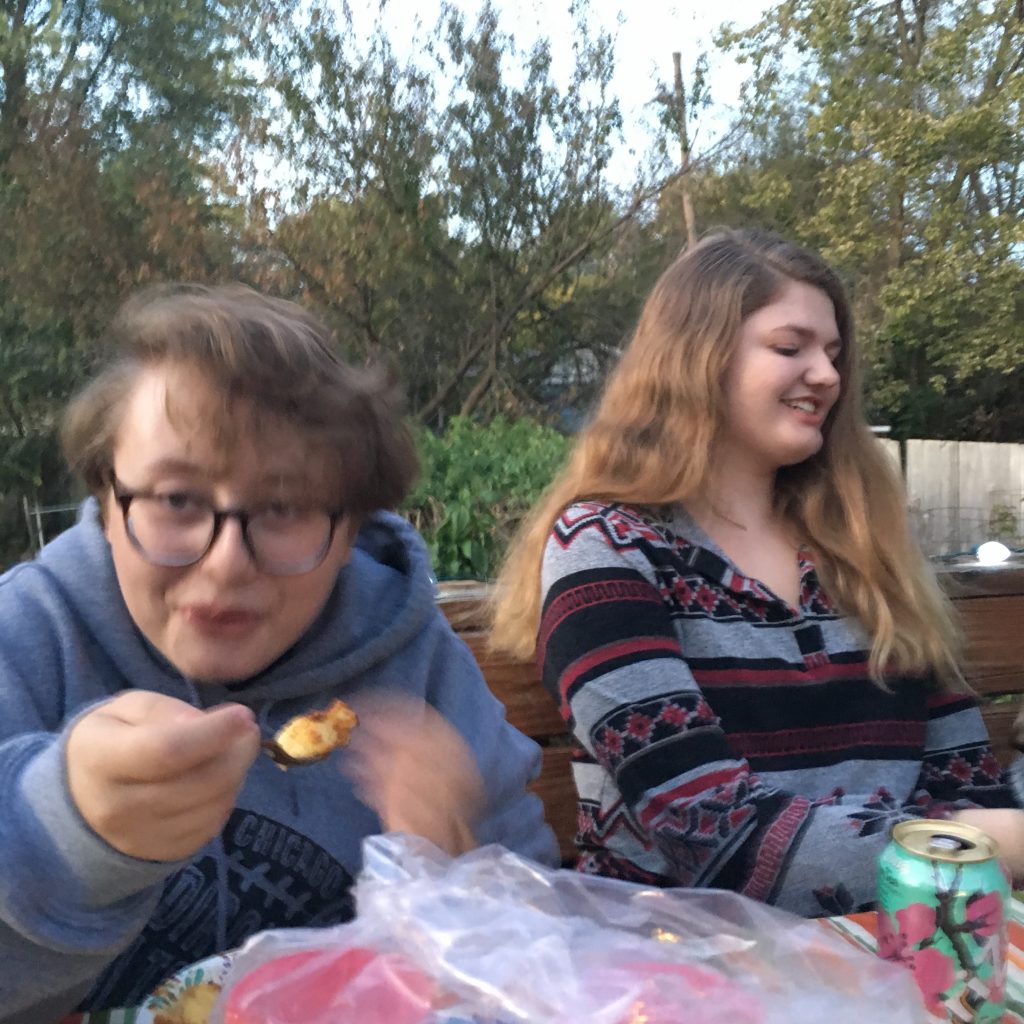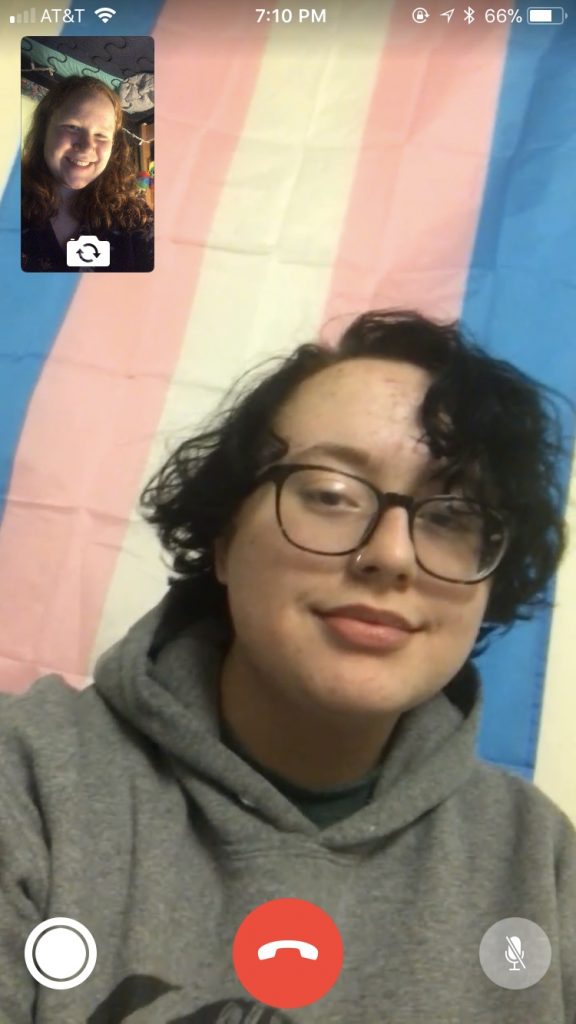Where do I belong?
Where do I fit in?
I feel that I was born in the wrong skin
People make me feel as if I am living in sin
Should I wear clothes that society binds me in?
Maybe I should wear something Feminine
If I did, maybe it would stop my feelings from within
Feeling like I am trapped in a small room where the air is thin
I just want to be me… in my meant to be skin
Shedding the skin to be me Isaiah
Artist’s Statement

For my narrative, I have decided to write a poem over my interview with Isaiah Morey. Isaiah is transgender, female to male. I have known him since he was still going by Summer, so about three years. I had seen some of the things that he had gone through while they were happening, but never really knew how bad it was. For example, people were calling him derogatory names, and I had heard this. Someone ripped up his artwork and threw it in the trash, he had spent four months on that piece. He had names written on his locker, and his car vandalized. Having this interview was a very good experience for me. It opened up my eyes to see what really goes on, and I was able to gain insight into his personal convictions and the events that were happening in his life. It really opened my eyes for what transgender people go through on a day to day basis. I have always been a close-minded person, but talking to someone about their experiences in life has changed that for the better. I now look at people through a different lens, and realize that everyone is struggling with something. As for Isaiah, we were mostly just acquaintances, but now we have become very close friends.
The poem is about the personal struggle that Isaiah felt growing up. He felt that he was more masculine than feminine. He started struggling to find who he was as a person early on, around middle school. He had always worn masculine clothes and had his hair cut short even when he was Summer. He never felt that he identified with being a girl or being a lesbian. Even though he felt that he was a man, he went by Summer, his birth name, and lived as a lesbian. He had a lot of trouble with the school that he went to. Isaiah attended a Lutheran high school in Kansas City. The teachers at that school always singled him out and used him as a prop to show kids how not to be. The school put him in at-risk religion classes since the staff said that he had “homosexual tendencies”. The staff wanted him to conform and be who he was born, Summer, a girl. He was kicked out of his own dance for wearing a suit and tie and bringing his girlfriend. When his car, locker, and art were vandalized nothing was done, and the staff even continued to bully him.
The next five lines represent his inner struggle with identity. In the interview, he talked about how he would wear a dress to school just to give it a chance. He was reaffirming that this was the way that it was supposed to be. “I would purposely go and go to school, like wearing a dress or wearing something like really feminine or whatever”[07:37]. The rest of the poem talks about people’s actions and reaction. The students at his school would say hurtful things about him. The students also would vandalize his locker with hateful messages and tear his artwork off the walls. His car was vandalized on multiple occasions, and the school would not do anything about it. There were many instances where the school could have stepped in, but nothing happened. Isaiah was being victimized and nothing was being done, due to the fact that what he believed went against the school’s religion.

I found this very sad because we are supposed to love all people and help them despite beliefs or personal convictions. All the experiences that Isaiah faced were very unfortunate. He still faces problems like that even though he had graduated and is out of that school. There are instances that happen at work and out in public. Personally, in order to keep this from happening, people need to learn tolerance. We may all have our beliefs but that is no reason to cause emotional or physical harm to another person. This interview has helped me to better understand some of the struggles that transgender people face in the community. If anything, this assignment has taught me to embrace all differences and to advocate for those whose voice is not being heard.
Relating the Narrative Back to Our Course
The Nazis would push their agenda over on the citizens of Germany and surrounding countries persecuting those who were Jewish or homosexual. Since they had power over the people, they would slowly bring in ways to persecute, and it was not all at once. Starting with wearing the star of David stitched into the Jewish peoples clothes, then gradually taking over Jewish owned businesses and rounding them up and even getting the Polish people on board to help turn in Jewish people. In this course we have read and watched content that has depicted this. In Lacombe, Lucien by Louis Malle, Lucien is French but joins the Gestapo to help round up members of the underground. This is an example of the power that Nazis had even over in other countries. Also in Maus by Art Spiegelman, we see Vladek desperately trying to hide his family and survive the Nazis occupying Poland. They receive help from the Polish, but the Polish also start turning Jews in to protect themselves from harm. This is an example of the Nazis influence of non-Jewish people.

Years later we still see persecution in our society. Even though it is not mass genocide like we saw during World War II and the Holocaust, it still continues today. Whether it is a friend, or a story that we see in the media, it exists all around us. As humans we need to treat people with the dignity they deserve. We need to learn to be more open-minded and willing to understand someone’s personal struggle.



